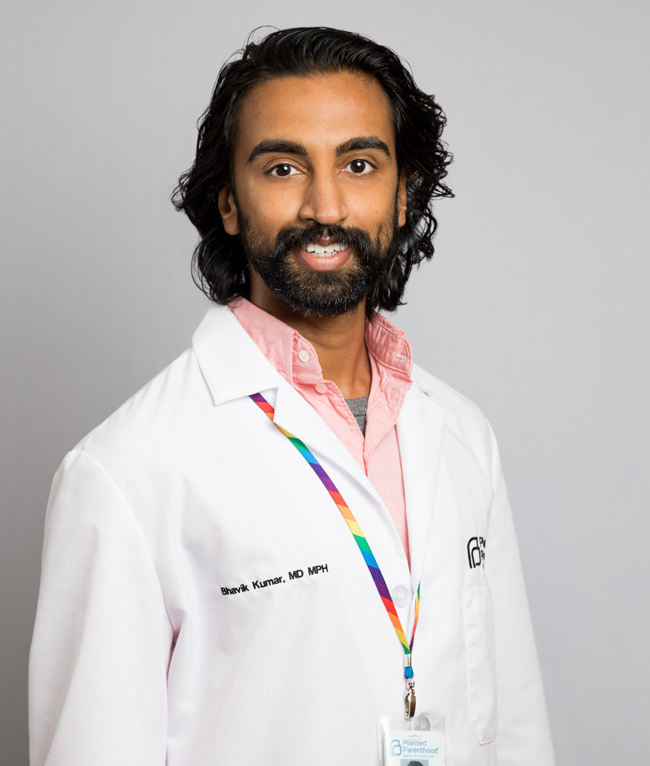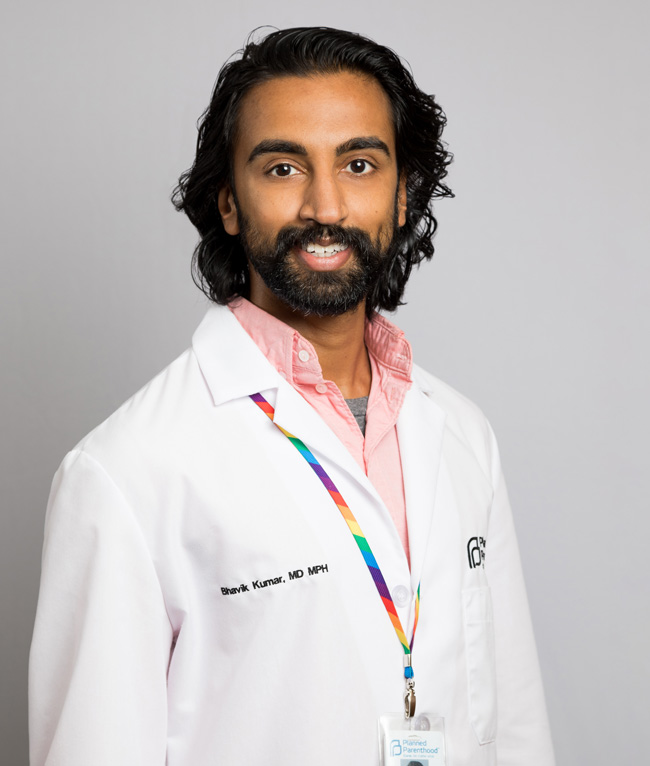

Growing up “brown, gay, and marginalized” in a small Texas town inspired Houstonian Bhavik Kumar to become the activist and physician he is today.
As the medical director for primary and trans-care services at Planned Parenthood Gulf Coast (and an abortion provider at the Planned Parenthood Center for Choice), Dr. Kumar says his work extends beyond the traditional role of a family physician. “I think it is important that physicians like me get involved in activism.” To that end, he advocates for making comprehensive health care available to everyone.
Kumar was born in London but raised in the United States after his family eventually emigrated from India. Arriving in Corsicana, Texas, in 1994 at age nine, he joined predominantly white classmates in an ultraconservative community that did not accept differences of color, heritage, and sexuality. He felt the sting of racism intensify after the 9/11 terrorist attacks because of his family’s undocumented status, and it was this pain that led him to forge a commitment to pursuing fairness and justice for all people.
Kumar attended medical school at Texas Tech University and completed his training at institutions in New York City that included Montefiore Medical Center, Albert Einstein College of Medicine, and Columbia University. During his New York City training, the aspiring doctor became intrigued with reproductive-health issues and felt a calling to assist disenfranchised populations. “I realized early on that access to abortion allows people to control their lives and destinies. Helping the most marginalized reach justice is the most rewarding life purpose for me,” Kumar says.
While many adventurers who leave conservative states to pursue their careers never return, Kumar saw things differently. He knew life and work would be easier for him in New York City, but he wanted to return to his adopted home state where a more critical need existed. “It was important to me to return to Texas to provide abortion and trans care,” he notes.
For years, Kumar traveled throughout Texas for Whole Woman’s Health to help provide access to abortion care for those in need. He then moved to Houston and went to work at Planned Parenthood Gulf Coast, which has expanded its services for trans and gender-nonconforming patients who struggle to find appropriate and affordable health care.
With his dangerous work under unprecedented assault by conservative religious groups and the Texas Legislature, Kumar and his associates must remain vigilant about the threat of violence from anti-abortion forces. A quote on his office wall from the Black feminist Audre Lorde helps keep him grounded: “When I choose to be powerful, to use my strength in the service of my vision, then it becomes less and less important whether I am afraid.”
“Unfortunately, those who oppose the health care we provide to patients go to great efforts to terrorize both the providers and those seeking care,” Kumar notes. “They are relentless, aggressive and, quite frankly, terrorists. As a queer person of color, navigating this type of hatred is not new to me, so the fear never paralyzes me. It’s just there.”
Kumar noted that conservative politicians, at the behest of religious groups, are prioritizing legislation to deny access to abortion services, while none of the proposed bills would do anything to help patients. “They are attempting to pass laws that will really hurt people. It’s the most drastic effort we have ever seen, and it could wipe out care.”
The erosion of access to safe abortions could result in an increase in maternal mortality, which particularly impacts minority and low-income women. In the 1960s and ’70s before the Supreme Court legalized abortion services, women took extreme health and legal risks to terminate unwanted pregnancies. “It really worries me that we are getting closer to that,” Kumar emphasizes.
Kumar says that his work has become his life’s mission, and that someday he wants to participate in training and mentoring the next generation of people who will provide access to safe abortion services. “I really enjoy the work I do. I don’t plan to leave Texas, and I can’t imagine being anywhere else. Abortion care and gender care brings joy and meaning to my life. I don’t see that changing.”
For more information on Planned Parenthood, visit plannedparenthood.org. Keep up with Dr. Bhavik Kumar on Facebook at @doctorbkumar.
This article appears in the May edition of OutSmart magazine.